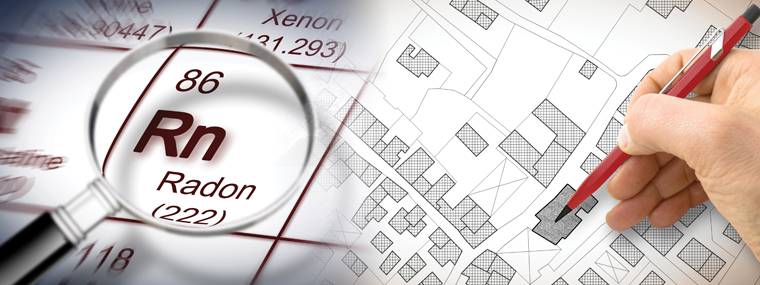
Excessive Levels of Radon Gas Raise Legal, Insurance Questions for Florida Condominium Association
By Laura Manning-Hudson / Published March 2019

A recent news report about excessive levels of radon gas in a Florida condominium raises some interesting questions about the proper response from a condominium association and its insurance carriers on this issue.
The report, which appeared in late November in the pages of the Venice Gondolier Sun, chronicled how the owners of a unit at the South Preserve II of Waterside Village Condominium were surprised to learn that tests conducted at the behest of their tenants found excessive levels of radon in their unit. The odorless and colorless gas, which comes from the radioactive breakdown of naturally occurring radium found in most Florida soils, rocks, and groundwater, is the second leading cause of lung cancer overall and is the leading cause among non-smokers. In Florida, one in five homes tested has elevated radon levels above the limits set by the Environmental Protection Agency, and the gas can be found in homes, schools, offices, and high-rise condominiums.
According to the newspaper’s article, the unit owners sent the test results to their association, which hired a different company to conduct its own tests that yielded similar results. The radon levels in the residence were more than five times the level considered safe by the EPA.
The owners obtained an estimate for $3,100 to mitigate their unit, but per EPA rules the company would be required to inform the neighbors of the mitigation process. It also requested that the owners sign an “inadvertent collateral mitigation form” stating the company would not be held responsible for any environmental impacts on adjoining units.
After consulting with the association’s attorney and insurance carrier, the property manager told the owners that because the radon levels existed within the boundaries of their unit, it was the owners’ responsibility to mitigate. The association agreed to allow the owners to conduct the mitigation, but it also demanded that they first sign an agreement making the owners liable for any radon infiltration into other units caused by the process.
Needless to say, the attorney for the unit owners told them that they would have to be crazy to sign such an agreement. The owners believe that there are probably elevated radon levels throughout the building, which would make it the responsibility of the association to mitigate. They have banded together with three other unit owners who are also concerned about the issue and have requested a meeting with the board of directors and property manager to discuss the next steps.
For this and other Florida community associations, the prospect of excessive levels of radon and related mitigation procedures can present unexpected challenges with the potential for legal and financial repercussions. Unlike HOA communities with detached single-family homes, a condominium association’s concern is the possibility that the mitigation process could affect adjacent units.
Association boards of directors and property managers who are contending with issues involving excessive radon levels should consult with highly qualified and experienced association legal counsel to assess the situation and determine the most prudent course of action from a legal liability standpoint. If the excessive levels are pervasive throughout the property and not contained within a single unit, associations will need to carefully consider any response with the guidance and assistance of their insurance carriers and attorneys.
Laura M. Manning-Hudson
Partner with the South Florida law firm of Siegfried, Rivera
Laura M. Manning-Hudson is a partner with the South Florida law firm of Siegfried, Rivera, in the firm’s West Palm Beach office. She focuses on community association law and commercial litigation. Manning-Hudson earned her law degree from the University of Miami and bachelor’s degree from Florida State University. She can be reached at (561) 296-5444 or via e-mail at lmanning@srhl-law.com.




